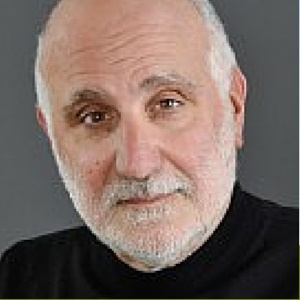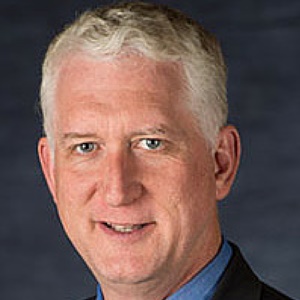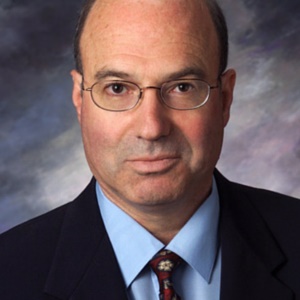
Keynote and Panel Discussion
Sheila Cox, Senior Consultant, Cutter Consortium
Building Teams that will Thrive Through Any Organizational Change
The last generation of leaders earned their stripes in an era when they could paint a clear vision of their organization's future, develop a blueprint to implement the vision and guide their teams to achieve it. In that era, the future seemed more certain and predictable, and there was a stronger connection between action and results.
Those times are behind us. To survive in today’s turbulent environment, we have to mobilize our teams before we have a clear notion of exactly where we are heading. Our teams need to be in motion -- and able to correct course rapidly -- rather than wait for clarity. Because by the time the destination becomes obvious, it's too late to begin the journey.
In this keynote, Cutter Senior Consultant Sheila Cox will present new leadership tools and mindsets that will help you motivate and mobilize your teams. You will learn how you can modify your thinking and behavior to enable your teams to succeed during periods of uncertainty. Sheila will demonstrate the best ways to create transparency, encourage collaboration, and keep morale high during periods of change and uncertainty. You’ll discover how to achieve clear results even when organizational vision is blurry.
1:30pm-3:45pm

Keynote and Panel Discussion
Steve Andriole, Cutter Fellow; Thomas G. Labrecque Professor of Business Technology at Villanova University
When Business & Technology Finally Marry
All business models and processes are powered by IT. No business on the planet can survive without IT. Business models and processes are supported by operational and strategic IT and improved and even sometimes disrupted by technology infrastructure, applications and communications. So every organization needs cost-effective operational technology and ROI-positive strategic technology.
Plus, all organizations are "social" and "mobile." They're all in the cloud — or soon will be. Consumer technology is pervasive, as BYOD models proliferate: customers, suppliers and employees work anytime and everywhere; in 2015 and forever, organizations are defined by "four screens".
Technology adoption is now near-immediate. Consumerized technologies – precisely because they’re designed and developed for consumers – are more than "ready" for immediate experimentation (years ago we called this "prototyping"). Tablets, smart phones and modern laptops can connect and transact anywhere, any-time. They're battle-tested, and the applications that extend their capabilities are cheap, fast, functional, and available from the cloud. Distributed architectures are emerging, too: consumer products + cloud-delivered applications + transactions; the Apple suite of products, applications and services is just one example of this.
So now what? What skills and competencies do we need to optimize the relationship between business and technology? How will business and technology consummate their relationship? What will their children look like? In his energetic keynote, Cutter Fellow Steve Andriole will challenge your notion of the business-technology relationship and how your IT organization needs to adapt to truly power your business.
Panelists: Richard Nolan, Kathy Smith, Vince Kellen
4:00pm-5:15pm

Active Learning Exercises
Tom Grant, Senior Consultant, Cutter Consortium
Serious Games
Serious Games are time-bound, structured, participatory activities that change how people interact. They hold the potential for helping your organization improve team dynamics, gain valuable insights into customer needs, explore strategic options, teach important lessons, get people to pay more attention to marketing messages, and more. And since they're games, they're also highly engaging for the participants. You’ll discover just how engrossing and beneficial Serious Games can be when you take part in several led by Cutter Senior Consultant Tom Grant.
6:30pm-9:30pm

Evening Cocktail Party
Unwind and socialize with the speakers and your fellow attendees while enjoying some of Boston's tastiest regional specialties.
Tuesday, 5 May 2015
8:30am-9:30am

Roundtable
Led by Tom Grant, Senior Consultant, Cutter Consortium
Application Lifecycle Management
Software strategy has become a critical part of corporate strategy. But many companies’ approaches to software development and delivery are disconnected from their critical business objectives. Tactical improvements like Agile, continuous delivery, or even just a better source control system are important and necessary, but on their own, they are just too low-level to connect the work of software professionals to the larger corporate objectives.
In this roundtable session, Cutter Senior Consultant Tom Grant will lead a discussion on using Application Lifecycle Management (ALM) to connect the tactical and the strategic and delve into how ALM provides operational guidance on coordinating the work of different groups that "touch" and/or are being touched by applications. Tom and your colleagues in the room will share ideas on developing an ALM strategy that can adapt quickly to technological and business changes, how to create and respond to feedback loops about technical and business outcomes, how to leverage the benefits of Agile and other methodologies at the organization level, not just the team level, and more.

Roundtable
Led by Robert Scott, Fellow, Cutter Consortium
Maximizing Team Effectiveness
Why are some business teams effective, while others struggle? Why are some project teams more cohesive than others? Can you design your team to maximize performance? During this roundtable discussion, Cutter Fellow Robert Scott will share tips and tricks on how to create a high-performing team, including:
- Creating a clear team purpose and well-defined deliverables.
- Understanding and clarifying the process of decision-making.
- Effectively leveraging the skills and experience of each team member to create a focused, engaged and fun team.
Share your own experiences while gaining the knowledge and tools required to produce highly creative and innovative results through teamwork, collaboration and powerful decision-making.
Roundtable
The Internet of Things
9:45am-12:00pm

Case Study and Discussion
Darren Meister, Associate Professor of General Management (Entrepreneurship and Innovation), Ivey Business School
Could a "Technology Issue" Take Your Organization Down?
Imagine the horror felt by business technologists responsible for the loss of the equivalent of their company’s total market capitalization in just 45 minutes. The case study we’ll work at Summit 2015 explores the circumstances surrounding this "technology issue". Though most organizations are not likely to face that particular risk scenario, we all have "the big one" for our own organizations constantly at the back of our minds and in our peripheral vision. With the case’s coauthor Darren Meister as facilitator, you’ll have the opportunity to think through the risks your organization faces – and the actions you should be prepared to take should they come to fruition. First, in small groups, you and your peers will discuss the case and the IT team’s points of failure. Then Dr. Meister will bring all groups together to synthesize the lessons to be distilled from the case. Be among the first to work through this valuable cautionary tale with take-home value for anyone in IT leadership.
1:15pm-2:30pm

Keynote
Rob Austin, Fellow, Cutter Consortium
Managing in an Age of Radical Transparency
Secrets leak and stories go viral in the blink of an eye, now that every employee carries a cloud-connected video recording device and storage media have become practically undetectable. Smartphones, mass storage, and big data allow information to routinely and easily flow past traditional boundaries. This transparency can be positive: it might cause a thuggish political leader to think twice before committing atrocities in the age of ever-present, smartphone-based video capture. But on the flip side, transparency makes protecting proprietary information a struggle. How can business technology leaders manage both the positive and negative consequences of Radical Transparency? In this keynote, Cutter Fellow Rob Austin will paint you picture of today's business landscape as it pertains to the control of information. Explore with Rob the new reality that may result from this changing terrain and offer insight into what it could mean for your business strategy and operations.
2:45-3:45

Panel Discussion
Led by Vince Kellen, Cutter Fellow
Exploring Infrastructure as a Service
Is moving your hardware, software, servers, storage and other infrastructure components to a third-party provider right for your organization? Or should you consider IaaS only for workloads that are temporary or experimental? Can a pay-as-you-go model completely eliminate the expense of deploying in-house hardware and software? How closely do you need to monitor your IaaS environments to avoid being charged for services you haven’t authorized? Are IaaS solutions really as scalable as they purport to be? How can you be sure your infrastructure is secure? During this session our panelists will discuss and debate these – and your—concerns about IaaS and when to use it, which providers offer the "right stuff’ for your needs, and how to manage both your assets and your relationship with your provider.
4:00pm-5:15pm

Presentations
Hosted by Lou Mazzucchelli, Cutter Fellow
Lightning Talks
Every Summit participant is invited to submit a topic for consideration. Lightning Talks are short and to-the-point presentations on a single strategy, technique, or success story. It's your chance to share your experiences with the rest of the Summit community.
Wednesday, 6 May 2015
8:00am-8:40am

Roundtable
Led by Vince Kellen, Fellow, Cutter Consortium
The 21st Century Workforce
What skills will you need from young workers in the years ahead? It seems like a simple enough question. But in this roundtable discussion, Cutter Fellow Vince Kellen will challenge you to think about whether those skills might rapidly become obsolete as a result of massive changes in the economy and technological innovation. You’ll consider questions such as:
- What jobs will you have for future college grads? Are you certain those jobs will actually exist in the near future?
- What "new" jobs will you need to fill?
- There's a trend towards hiring young people with multidisciplinary skills. How can you find these people? Should you train them (invest in them!) yourself? If not, how should they gain this experience?
- What skills will be most in demand in your organization’s future?
- What general skills and knowledge will college grads need to have?
- Are you looking for innovative, problem-solvers? What does one look like?
This roundtable discussion will help you think about what the future workforce might look like at your organization and give you a jump start on your long-term HR and training strategy.

Roundtable
Led by Johanna Rothman, Senior Consultant, Cutter Consortium
Project Portfolio Management
Do you have too many "number one" priorities? Are you waiting on specialists, or have emergency projects? Or, do you have projects that suddenly pop up out of the blue? If so, you are suffering from insufficient project portfolio management.
In this roundtable, Senior Consultant Johanna Rothman will lead a discussion on how an agile and lean approach to the project portfolio can help everyone see what’s going on, how to apply agile and lean to the project portfolio, and how to collaborate to make great portfolio decisions.
9:00am-1:00pm

Forum
Led by Ken Morris, Senior Consultant, Cutter Consortium
CIO/CTO Roundtable
Ken Morris, a seasoned former CIO, will lead an open conversation about the challenges senior IT executives are facing. From political struggles to budgeting concerns, from managing vendors to insight about BYOD, and making the relationship between IT and product development/engineering more collaborative, no topic is too big or too small to discuss in this forum.


Workshop Track
Led by Israel Gat, Director, and Murray Cantor, Senior Consultant, Cutter Agile Product & Project Management Practice
The Best of All Worlds: An Integrative Framework for Software Development
It's clear that business trends affect the role of software, and that software, in turn, impacts business trends. This virtuous cycle is driving a convergence of menu-driven and principle-driven approaches to software that will result in a new framework for software development -- a framework that integrates the best parts of today's popular frameworks. In this workshop, Israel Gat and Murray Cantor will reveal how you can use this new, integrative framework to increase the business value of your software. You'll also discover how this integrative framework, coupled with the iterative nature of Agile that makes data-driven learning -- and reacting -- possible, sheds light on the opportunities for your organization to develop better software. Topics will include:
- A comparative analysis of software methods, practices and frameworks, with a focus on Agile, Lean and Kanban
- A look at the limitations of current-generation agile process frameworks, and how the emerging learning-based software process frameworks can help you overcome them.
- A three-tier model for effectively managing your software project portfolio.
- How modern deployment techniques revise the classic macro/micro software processes paradigm.
- Visual analytics for both the C-suite and the folks in the trenches that will help you quantify learning; properly interpret figures of merit for software; and improve business-IT alignment
- Methods you can use for instrumenting agile organizations and the processes they use

Workshop
Led by William Ulrich, Senior Consultant, Cutter Consortium
Business Architecture: A Practical Workshop for Novices & Journeymen
Over the past four years, business architecture has transitioned from a loosely set of defined concepts and theories to a robust discipline benefitting organizations worldwide. Business architecture today incorporates a widely agreed upon foundation, formal framework and best practices that are spreading organically across a myriad of industries. Tired of theories, hype and piecemeal approaches? Then come to this workshop. Whether you are a novice or ready to take your efforts to the next level, this workshop provides an robust, integrated and tested approach that businesses are using in practice to deliver business-wide benefits. Topics include:
- Introducing Business Architecture: Delivering Transparency to the Business Ecosystem
- Understanding the Business Architecture Value Proposition: A Strategic Perspective
- Building the Core: Capability, Value, Information & Organization Mapping
- Moving from Strategy through Execution: Strategy, Initiative, Stakeholder, Policy & Product Mapping
- Aligning Related Business Disciplines: Case Management, BPM & Business Requirements Analysis
- Business Architecture & IT Architecture: Transformation Definition and Solution Deployment
- Governance, Sponsorship & Getting Started: Key Takeaways

Workshop Track
Led by Lynn Winterboer, Senior Consultant, Cutter Consortium
Iterative Development Strategies for Business Intelligence Projects
BI teams around the globe are using "agile" approaches for delivering value to their customers and end users. Although Agile is simple in concept, it's definitely not easy. It's a journey toward a different mindset, focusing on regular inspection and adaptation to incrementally improve the team’s effectiveness for the organization. True agilists continue to strive for improvement year after year in areas such as requirements, development and testing processes; technical efficiencies; relationships; and value delivered to the organization.
An agile transformation may seem daunting to a BI team that has just been introduced to this mindset, yet even the first steps toward agility can yield benefits to the organization. This session will introduce a few of the many types of activities BI team members and stakeholders can undertake to begin to see the benefits that agile teams experience, including:
- Limiting work in process
- Project prioritization
- Project vision
- Requirements Mapping
- Definition of Ready
- Pulling Testing Up Front
- Retrospectives
1:00pm-2:00pm

Keynote
Diana Larsen, Senior Consultant, Cutter Consortium
The Heroic Learner: Courage, Compassion, and Confidence for the 21st Century
In the coming years, learning will emerge as a key competency, not only for every organization, but also for every individual – from those in the board room and the executive suite to the folks on the front line. In this luncheon keynote, Diana Larsen will celebrate the learning executive. You’ll discover how to recognize the courage of a leader who can see, embrace, and learn from mistakes, who can lead boldly with assurance that s/he can navigate a future where no one has been before.
During these final thoughts for Summit 2015, you’ll practice setting the conditions for maximum learning for yourself and for your leadership teams. And you’ll walk away with five crucial guidelines for heroic learners and the energy to put them to the test.
2:00pm-5:00pm
Discussion
One-on-One Discussions
The Summit meeting room is available beyond the end of the formal program for you to continue any of the conversations of the week, or meet with Cutter's experts to discuss the specific challenges you're working to overcome.
Stay Connected
For news and updates on Summit 2015, follow us on Twitter, Facebook, LinkedIn, or Google+.

